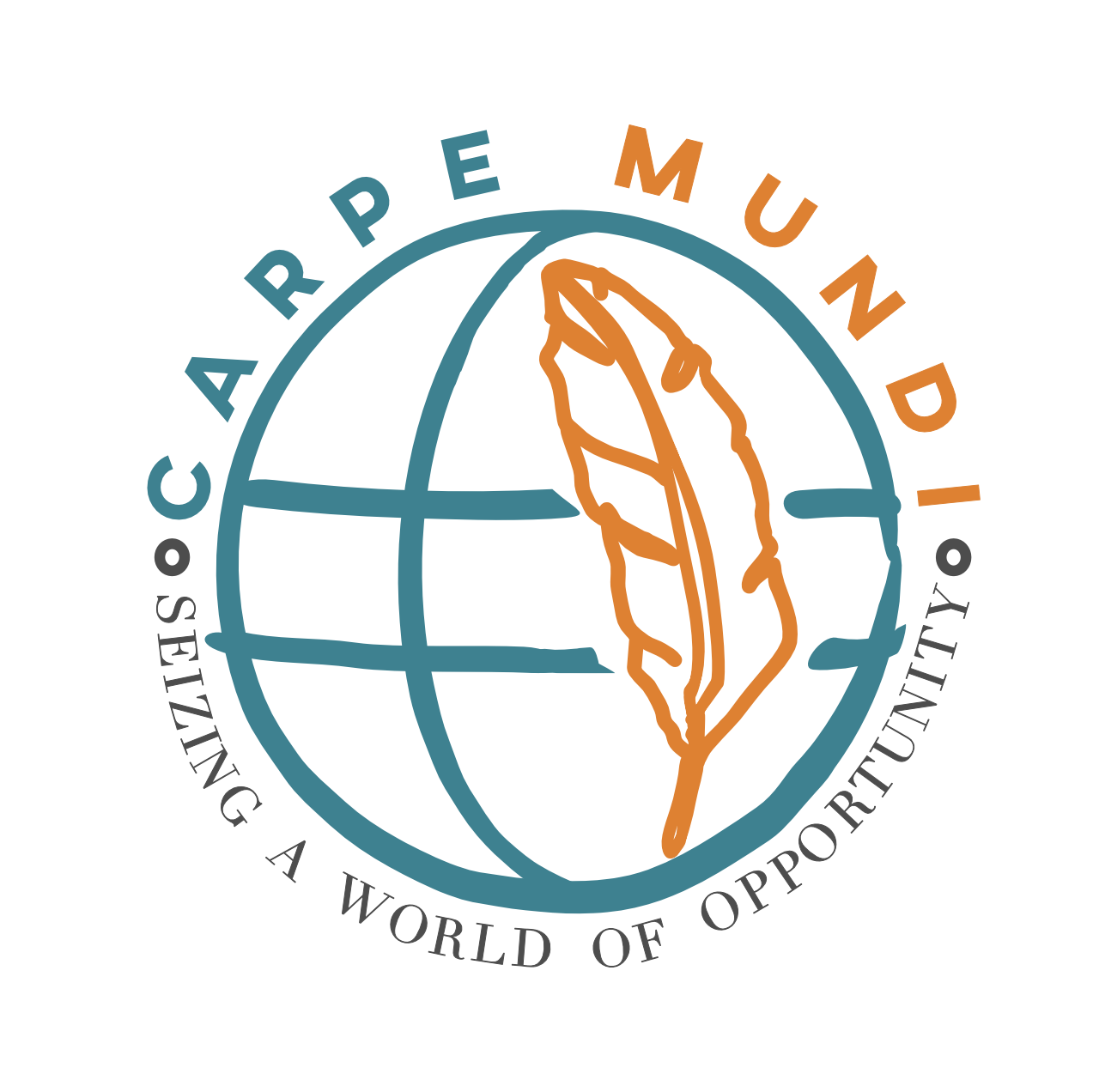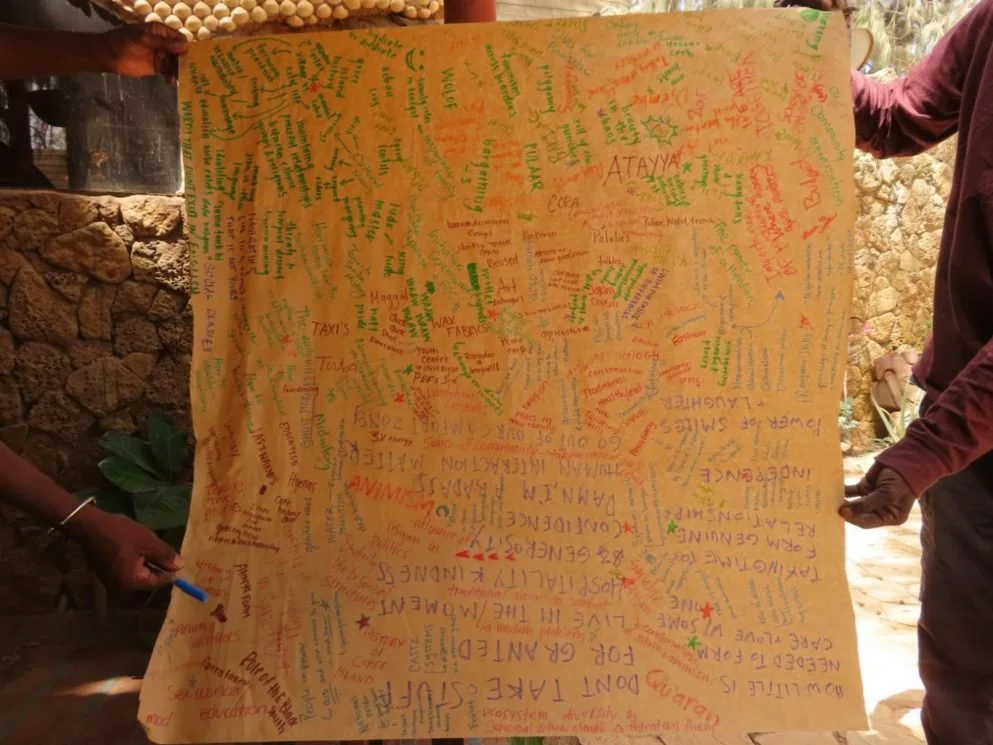The group's "lessons learned in Senegal" brainstorm
Greetings from our gorgeous, beach-side transference location in Toubab Dialaw!
In these final days of the program, we are slowing things down to reflect and soak our last days together as a group and in Senegal. This morning, we sat together to brainstorm a list of the many things that we have learned during our semester. It’s surely an incomplete list, but a start at describing the many aspects of how we were able to learn and grow from this time.
With care,
The Senegal Spring Semester
Lessons Learned in Senegal (an incomplete list)
Don’t take things for granted (such as daily amenities that we have in the US)
Live in the moment
Be hospitable and kind
Generosity
Hospitality/Terranga
“Damn, I’m a badass” – confidence in how much we are capable of
Human interaction matters so much – the importance of building relationships
How little is needed to form a caring and loving relationship with someone
Taking the time to get to know people – forming a genuine connection
Independence
How far smiles and laughter can carry you
Lots about Islam and brotherhoods in Senegal
Navigation skills
“Don’t worry, be happy”
Taking emotional inventory
Feminism across borders – what that looks like in different countries
Initiation ceremonies and FGC (and the importance of the blacksmith caste)
The melody to the Aida commercial
National pride as evidenced in the World Cup qualifying soccer match
Health
The unimportance of differences (the importance of similarities is more than differences)
Traditional health
The effects of globalization and colonization
Senegalese politics and how the government is structured
Agriculture (including from the Minister of Agriculture himself!)
Travel off the beaten path
Climate change
The power of attention
Religion
Decentralization
Talibes
How to roll with the punches
Pulaar, Wolof, French!
How to bargain
Ataaya, bissap, bouilli, maad, Pressea, beignets, Biskrem
Where money goes matters
The many uses of baobabs
Wax fabrics – their history and uses
Fashion/drip
The privilege of foreigners
How to identify a sai sai – and how to deflect them
How to reuse
Waste
How to play the djembe
Awareness of lots of kinds of West African music (ie kora)
“One peace, one love, one Africa”
Importance of family
Polygamy
Community organization
Migration (from the words of someone who had attempted to migrate to Europe twice)
Art, including glass painting and its revolutionary history
Joking cousins
Many ethnic groups (which last names are which)
How to make tapa lapa
Making ceeb u dien, akara, mafe, yassa, latchiri jambo, etc….
Water pollution
Mangroves – their importance and planting them
Ghost stories (Ramatou Laye)
International development
Peace Corps
Dialects and migration
Ramadan
History of Goree Island
How to navigate Senegalese cities (including getting taxis and going to the garage)
How much things from the boutique should cost
Generational and oral knowledge (griots)
The youth center in Kolda
What happens to second-hand clothing in Africa
Child rights
The Koran
Touba and all its traditions
Cultural norms in Senegal – what you’re wearing and how you act matters
“You don’t need to bring your culture to other places”
Showing respect to elders
Influence of religion in politics (and daily life, social structures…)
Daily rhythms of life in Senegalese families (in both urban and rural, Christian and Muslim majority communities)
Ecosystem diversity in Senegal – and how various ecosystems are threatened by climate change
Community gardening
Animism and the Bedick people
The blending of animist and Muslim beliefs
Symbiotic relationship of people in Senegal – community matters!
Sharing – how do people take care of each other
Wedding customs
Women’s groupements
Waste and trash removal, including donkey trash carts (using traditional means to address a modern problem)
Commerce within Senegal
Threats to Lompoul Desert – how a zircon mining contract could close down an entire community, taking away crops and jobs
Education
Traditional versus contemporary Senegalese music
Midwifery
Senegalese caste system and social classes
The difference between village and city life (including being near the resources you’re using, how childhoods might be lived differently)
How to use a well
Bucket showers, taking the plunge, and doing laundry by hand
Traditional gold mining
Navigating family life in a family that’s not your own
Dance, rhythms, and polyrhythms
History of photography in Senegal
People in power and who have aid to give – how they choose to give it
How to be laughed at
How to make jokes in another language
The names of cooking implements in Wolof and Pulaar
Markets – how to navigate them
Words that just don’t exist in English (including the process of using a stick to get a mango out of a tree and also the process of creating foam for tea)
The Konkourang
The importance of hydration
The maximum number of cups of ataaya one can have in a night (it’s endless) and the value behind taking time to drink tea with your loved ones plus waxtan
Roles in the family
The times when it’s appropriate to consume peanut butter
Ngalax – the special dish prepared by Christians at Easter and shared with Muslim neighborhors
Peanut worms
How to make coffee the right way
Baye Falls and Lamp Fall, and Cheikh Amadou Bamba

